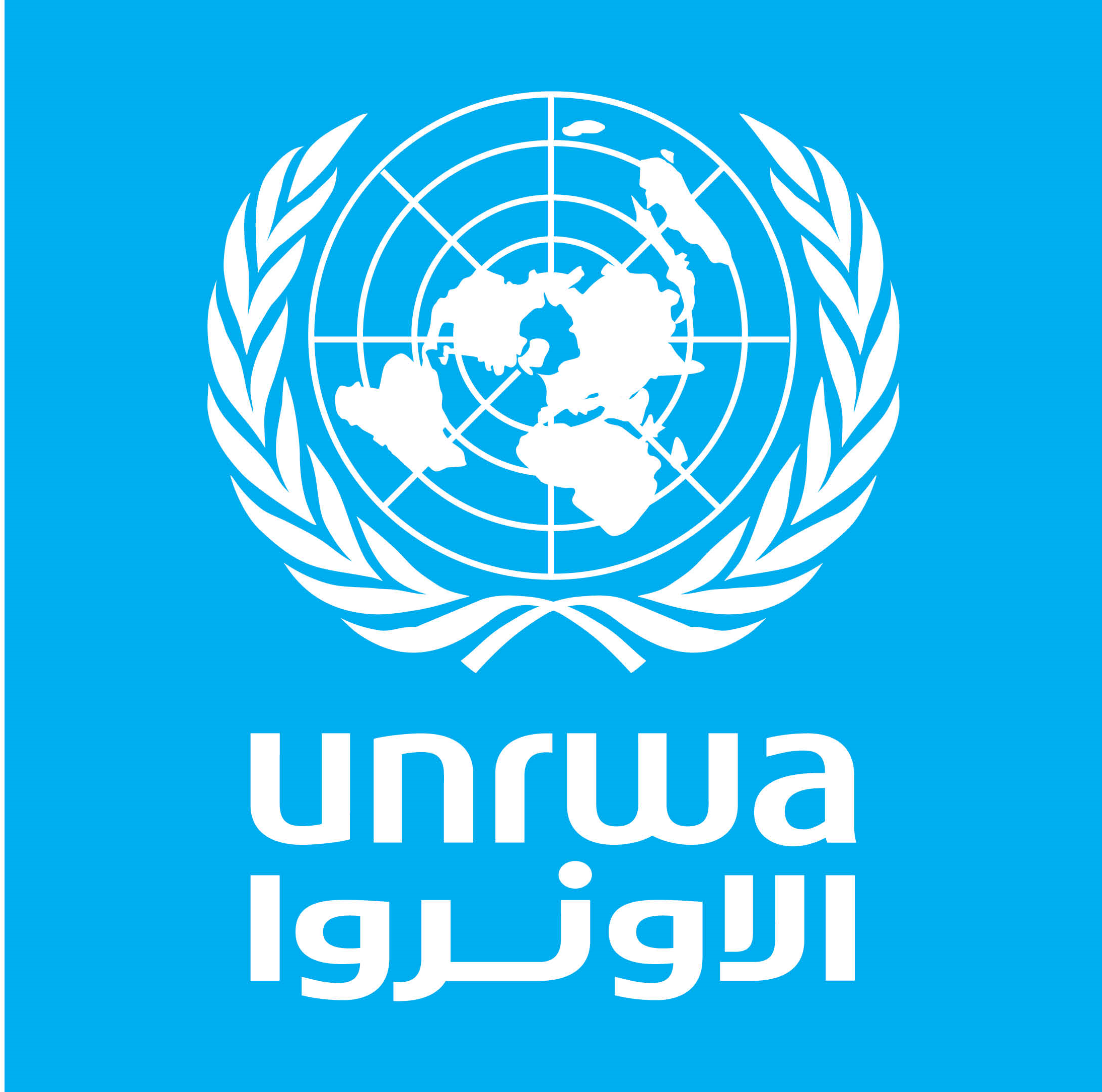United Nations Relief and Works Agency for Palestine Refugees in the Near East
Background
The United Nations Relief and Works Agency for Palestine Refugees in the Near East (UNRWA) was established pursuant to General Assembly resolution 302 (IV) of December 1949. The Agency is a subsidiary body of the Assembly and became operational on 1 May 1950, responding to the needs of about 750,000 Palestine refugees. It is one of the largest United Nations programmes, with a population of approximately 5 million registered Palestine refugees under its mandate and over 30,000 staff.
Policy framework
Internally, UNRWA is guided by its Gender Policy (2007), Medium-Term Strategy (2016-2021), and Gender Equality Strategy (2016-2021): 'Integrating Gender, Improving Services, Impacting Lives.' Further, UNRWA is guided by all relevant commitments by the UN system, including but not limited to: The Convention on the Elimination of all Forms of Discrimination against Women (CEDAW); The Beijing Declaration and Platform for Action; The United Nations Secretary-General’s campaign UNiTE to End Violence against Women (UNiTE Campaign); and Sustainable Development Goal.
Areas of Focus
As part of the Agency's commitment to gender equality, UNRWA prioritizes targeted interventions based on identified field priorities, one of which is gender-based violence (GBV). Thus, in view of addressing GBV holistically, UNRWA adopted in 2009 a multisectoral approach, which was informed by the Inter-Agency Standing Committee (IASC) Guidelines for GBV in Humanitarian Settings. One of the core aspects of the multisectoral approach is the centrality of survivours’ rights and needs, such as ensuring access to adequate services, confidentiality and safety. UNRWA's approach to addressing GBV focused on four main areas: i) training UNRWA staff to identify, refer and provide support to GBV survivors; ii) developing referral pathways; iii) building partnerships with external service providers; and iv) raising awareness and involving Palestine Refugee communities in the protection from GBV, to enhance both response and prevention.
In 2014, UNRWA began working on addressing GBV in emergencies, based on increasing concerns on responding and mitigating GBV in the context of the conflicts in Syria and in Gaza. Building on this, a process for increasing the institutional capacity of the Agency to address GBV in emergency contexts started in 2015 through a multi-year programme entitled 'Building Safety', which included the development of the following key components: i) Guidelines for GBV Risk Mitigation in Emergencies (2017); ii) GBV Training Package (2018); iii) E-learning Course on GBV Risk Mitigation in Emergencies (2018); iv) GBV Prevention Framework (2017). Integral to the work on GBV in emergencies, UNRWA has also been working on enhancing community participation and engagement.
Resources
- UNRWA Gender Policy (2007)
- UNRWA Experience in GBV Programming: Lessons from the first five years (2015)- What’s at Stake Fact sheet (2018)
- UNRWA Gender Equality Strategy (2016-2021): Integrating Gender, Improving Services, Impacting Lives (2016)
- UNRWA GBV Prevention Framework (2017)
- UNRWA Guidelines for GBV risk-mitigation in emergencies (2017)
Building on previous work, UNRWA has developed GBV Roadmaps which are a tool to operationalize its GBV Prevention Framework through concrete activities and accompanying monitoring tools.
UNRWA has made regular submissions to the Report of the UN Secretary-General on the Situation of and Assistance to Palestinian Women in the occupied Palestinian territory; SG Report pursuant to General Assembly resolution 70/138 entitled “The girl child”; reporting on the UN Systems-Wide Action plan on Gender Equality and the Empowerment of Women(UN-SWAP); and submissions to the International Human Rights System including the relevant treaty bodies and Special Rapporteurs.
UNRWA GBV indicators are a part of the Agency-wide monitoring framework and are reported on periodically.
UNRWA is a part of the Call to Action on Protection from GBV in Emergencies, and prioritize the implementation of its commitments as part of the Building Safety project on GBV in emergencies.
UNRWA continues to operate referral systems to ensure identification, referral and the access to critical services for GBV survivours.
View MoreUNRWA continues to operate referral systems to ensure identification, referral and the access to critical services for GBV survivours. Consolidating partnerships with external service providers to ensure that GBV survivours receive holistic care and also to address high-risk cases which require more specialized services was one of the main activities undertaken during this period.
UNRWA has created a number of tools to support enhanced Agency capacity to address GBV in emergencies, including UNRWA Guidelines for GBV Risk Mitigation in Emergencies (2017) and a GBV Training Package (2018).
UNRWA’s Gender Equality Strategy (2016-2021), Integrating Gender, Improving Services, Impacting Lives serves to guide and frame all gender-related work by the Agency, including work on GBV.
UNRWA has continued the implementation of its multi-year programme titled 'Building Safety' aimed at enhancing the Agency's capacity to address GBV in emergencies. Work has progressed during this period focusing on the following areas: i) prevention of GBV among Palestine refugees; ii) mitigation of GBV risks in emergencies; iii) enhancing the capacity of Agency staff to respond to GBV.
UNRWA does not generally work on legislation development but provides input as and when requested by host governments and partners.
In 2017, UNRWA carried out 135 trainings which engaged 2709 staff members across the Agency (Lebanon, Jordan, Gaza, West Bank, and Syria). Trainings focused on GBV and GBV in emergencies targeted staff in UNRWA’s different programmes.
